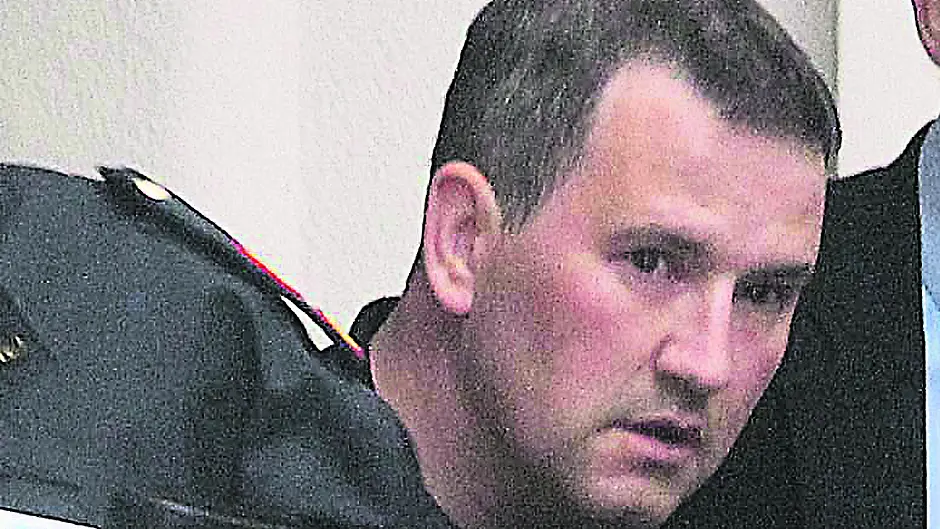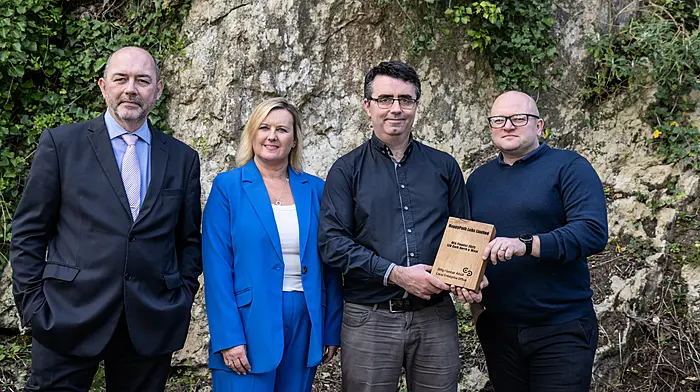By Eoin Reynolds and Paul Neilan
THERE is still ‘overwhelming’ evidence against Bandon man Graham Dwyer to preserve his conviction for the murder of Elaine O’Hara and the State was not dependent on mobile phone call data used in his trial, a senior counsel told the Court of Appeal.
Dwyer (50), who murdered the vulnerable care worker for his sexual gratification in 2012, is appealing his conviction. His lawyers are arguing that the retention of mobile phone data used in the case is an ‘opportunistic form of mass surveillance’ that transforms phones into tracking devices that can reveal a detailed picture of every aspect of a person’s life.
Dwyer denies being the person who bought and used a phone found in Vartry reservoir in Co Wicklow, to send messages about stabbing to Ms O’Hara and denies sending a text telling her to ‘go down to the shore and wait’ on the day she was last seen, August 22nd, 2012.
Dwyer, with an address at Foxrock in Dublin, was convicted by a jury at the Central Criminal Court in 2015 of the murder of the 36 year old. His victim had been discharged from a mental health hospital hours earlier. Dwyer fantasised about stabbing a woman during sex and used Ms O’Hara to fulfil his fantasy. After murdering her, he disposed of some of her belongings in Vartry reservoir and tried to make it look like she had committed suicide. He dumped her body in a forest where it was found in 2013.
Sean Guerin SC, for the State, said there was still ‘overwhelming’ evidence in the case that Dwyer was the user of the phone central to the case and that there had not been a dependence on using the disputed call data in securing the guilty verdict at trial.
Mr Guerin said there were four elements to the DPP’s case at the trial that had not changed.
‘The first point was that he [Dwyer] was the author of the text messages and connected to Ms O’Hara. The second thing we sought to do was to show the desires expressed in the text messages were real and reflected the intention to kill. Thirdly, that the circumstances of Ms O’Hara disappearance and death could only be explained by the realisation of that intention. The fourth element was to eliminate any other possibility, in this case suicide, as an explanation,’ he said. Mr Guerin said one text from Ms O’Hara to the phone attributed to Dwyer read: ‘You’re now a daddy again.’ At the trial, the child’s birth certificate matched the date of the text, which the DPP said proved it was Dwyer who was using the phone.
At one point Dwyer was warned by Mr Justice Birmingham for repeatedly interrupting Mr Guerin to deny text messages attributed to him. Mr Guerin was drawing the court’s attention to a June 27th 2011 text message which was sent from a phone attributed to Dwyer that read: ‘I want to stick my knife in flesh while sexually aroused. Blood turns me on. I would love to stab a girl to death sometime.’
Mr Guerin said Dwyer did to Ms O’Hara what he said he was going to do.
‘I didn’t say any of that,’ interrupted Dwyer from the prisoner’s area.
Mr Guerin said that one text message from Dwyer to his victim read that if anyone was to ask her who was texting her, she should tell them it was her brother. ‘I never wrote that,’ Dwyer again interrupted. On another occasion, he interrupted Mr Guerin by simply saying ‘no’ when counsel was speaking about text messages.
Court of Appeal President Mr Justice Birmingham addressed Mr Farrell about his client’s interruptions and said: ‘Mr Farrell, we have ignored one interruption ....’ and threatened to remove him. Dwyer’s legal team then spoke to him about his behaviour.
Barrister Anne Marie Lawlor, also for the State, said that the playing of videos to the jury of Dwyer being intimate with other women were ‘relevant and probative’.
Dwyer’s lawyers submitted that the jury could have been ‘overwhelmed’ by the nine videos of Dwyer being intimate with different women.
The videos were introduced in the trial to show the extent of Dwyer’s interest in bondage, discipline and sado masochism (BDSM) and to challenge his claim that he ‘wasn’t really into’ BDSM and that it was more Ms O’Hara’s interest. Barrister Michael Bowman, for Dwyer, said showing the actual videos could have ‘overwhelmed the ability of the jury to remain impartial’.
Barrister Remy Farrell, also for Dwyer, has told the three-judge Court of Appeal that mobile phone data should not have been admitted as evidence in his client’s trial as the retention of that data was a breach of his rights under the European Charter of Fundamental Rights.
The court has now heard both side’s submissions in the appeal and the court has reserved its judgment. Mr Justice George Birmingham, sitting with Ms Justice Isobel Kennedy and Mr Justice John Edwards, told both sides not to expect a judgment ‘imminently’ due to the amount of material in the trial.








